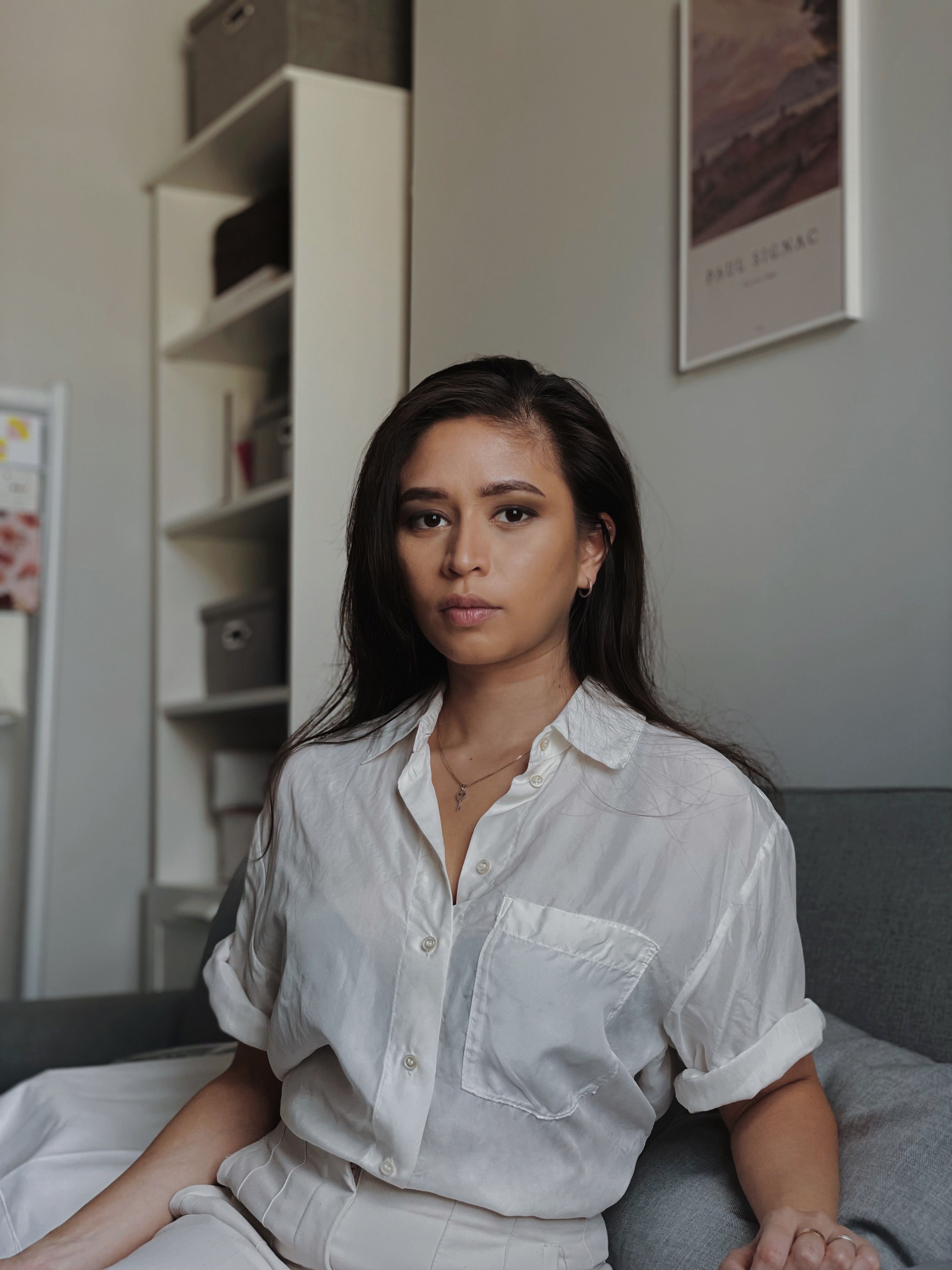
Meet: Maison d'Ira

- Written byGiada Maestra
- Published date 13 February 2023

After attending a Graduate Diploma in Fashion Media Styling at the London College of Fashion (LCF) in 2018, sustainable fashion influencer and female entrepreneur Ira Arz has dedicated herself to and educated herself on how to make fashion sustainable.
What made you decide to take the road of sustainable design?
As a sustainable fashion influencer and ocean activist, I’ve been actively volunteering and sharing messages on topics of social and environmental justice for the past three years. I worked as a fashion stylist for 5 years after graduating from LCF in 2018, where I studied Fashion Media Styling, which is where my career in fashion began. I worked with hundreds of clothing pieces every week and had the opportunity to learn about a wide variety of brands, their ethos, and the way they produce their products. I’m inspired by the ethical brands that have made their way into the fashion industry by minimising textile waste through different methods of production, but many remain that are still not sustainable.
I started exploring sustainable fashion activism through organisations such as Remake and Fashion Revolution and raised money to support ocean communities such as Surfers Against Sewage, spreading the message about the impact of microplastic produced in fashion.
Growing up in Southeast Asia, I have seen firsthand how waste and plastic clog up the entire country, from small rivers to beaches. I started this business as a way to provide products that are both good for the environment and the community, working with suppliers in Southeast Asia to produce home accessories sustainably.
Tell us about Maison d’Ira and its mission.
Maison d’ Ira is an online shop that aims to provide sustainable homeware accessories to ethically conscious consumers; from textiles to decorative accessories, all produced with recycled and bio-organic materials.
We want to reduce the amount of textile waste that ends up in landfills and convert the home interior industry to a sustainable and circular model because the fashion industry is one of the most polluting sectors in the world.
We collaborate with up-cycling stores/and NGOs in Southeast Asia that collect and recover second-hand clothes.
By what criteria do you choose your collaborators/suppliers/partnerships?
As a sustainable business, we focus on environmentally-friendly production, from factories in Thailand to suppliers and artisans in the villages of Bali. The majority of sources come from Asian countries, rich in many affordable, organic materials. We try our best to work with ethical and certified fair-trade suppliers that also provide fair wages to their employees; which we investigate and visit to ensure their authenticity.
You recently joined the UAL Sustainability Alumni Association and ran a sustainable xmas decoration workshop for alumni - tell us about what made you want to get involved.
I discovered the UAL Sustainability Alumni Association (link) last year and immediately wanted to get involved. I love meeting other like-minded people and learning about the fantastic things they’ve created, and supporting each other in our sustainable journeys. I didn't realise there was such a large and diverse community at UAL that cares about making a positive impact on the planet, and to learn about it was inspiring. I really wanted to run the workshop to share tips on how to be more sustainable at home. There are so many ways to be green with the right tools and resources.
What are your top tips for making your practice more sustainable?
My top tip is to keep learning how to make more sustainable choices by knowing what is good and what is bad for the environment and the community. It’s good to be curious about what you’re buying and where it came from. In the corporate world, sustainability is associated with a holistic approach, taking into account everything from manufacturing, logistics, and customer service. I'm constantly researching the products’ origin, who are my partners, and new ways to make my company even greener. There are so many short and long-term benefits of being sustainable and I'm glad to be part of this worthwhile journey.

Interested in joining UAL Alumni Sustainability and Enterprising Associations? Please contact us at sustainability@arts.ac.uk and enterprisingalumni@arts.ac.uk.


